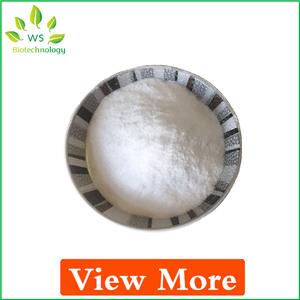
Poly(L-lysine hydrobromide) NEW
| Price | Get Latest Price | |
| Package | 1kg | 25kg |
| Min. Order: | 1kg |
| Supply Ability: | 20MT |
| Update Time: | 2025-01-24 |
Product Details
| Product Name: Poly(L-lysine hydrobromide) | CAS No.: 25988-63-0 |
| Min. Order: 1kg | Purity: 99% |
| Supply Ability: 20MT | Release date: 2025/01/24 |
Poly(L-lysine hydrobromide) (PLL) is a synthetic polyamino acid that has attracted significant attention in biomedical and pharmaceutical applications due to its unique properties. This polymer, characterized by its cationic nature, is derived from the amino acid lysine, which contributes to its biocompatibility, biodegradability, and ability to interact with various biological molecules. Its applications span drug delivery, gene therapy, and tissue engineering, making it a versatile tool in modern medicine.
One of the most prominent applications of PLL is in the field of drug delivery. The cationic charge of PLL facilitates electrostatic interactions with negatively charged molecules, such as DNA, RNA, or therapeutic agents. This property allows PLL to form complexes known as polyplexes, which enhance the stability and bioavailability of these biomolecules. For instance, PLL can encapsulate nucleic acids, protecting them from degradation in biological environments and facilitating their cellular uptake. This is particularly important in gene therapy, where the delivery of plasmid DNA or siRNA to target cells is crucial for therapeutic efficacy. Studies have demonstrated that PLL-based formulations can improve transfection efficiency, leading to enhanced gene expression and silencing in various cell types.
In addition to gene delivery, PLL has shown promise in delivering small molecule drugs. Its ability to form nanoparticles can be harnessed to create sustained-release systems, allowing for controlled drug release profiles. This is beneficial in minimizing side effects and improving therapeutic outcomes, particularly in the treatment of chronic diseases where long-term drug administration is required. Furthermore, PLL can be modified with targeting ligands to enhance the specificity of drug delivery to particular tissues or cells, thereby improving treatment efficacy while reducing systemic toxicity.
Another significant application of PLL is in tissue engineering and regenerative medicine. Due to its biocompatibility, PLL is often used as a scaffold material for cell attachment and growth. When combined with other biomaterials, PLL can provide a supportive environment for tissue regeneration, promoting cell proliferation and differentiation. This application is particularly relevant in the development of artificial tissues or organs, where a suitable scaffold is essential for integrating with host tissues. PLL-based scaffolds can be engineered to mimic the extracellular matrix, providing physical and biochemical cues that guide cellular behavior.
Moreover, PLL's ability to form hydrogels has opened new avenues in drug delivery and tissue engineering. These hydrogels can encapsulate cells or therapeutic agents, creating a localized environment that promotes healing and regeneration. The tunable properties of PLL hydrogels allow for customization in terms of stiffness, porosity, and degradation rates, making them adaptable to various applications.
Finally, PLL is also being explored in the realm of vaccine development. Its cationic nature can enhance the uptake of antigens by antigen-presenting cells, thereby improving immune responses. PLL can be used as an adjuvant, boosting the efficacy of vaccines by promoting better antigen presentation and activation of immune cells.
In summary, Poly(L-lysine hydrobromide) is a versatile polymer with significant applications in drug delivery, gene therapy, tissue engineering, and vaccine development. Its unique properties, including biocompatibility, biodegradability, and the ability to form complexes with negatively charged biomolecules, make it an invaluable tool in modern biomedical research and applications. As ongoing research continues to uncover its potential, PLL is poised to play an increasingly important role in advancing therapeutic strategies in medicine.
Company Profile Introduction
You may like
Recommended supplier
| Product name | Price | Suppliers | Update time | |
|---|---|---|---|---|
| $0.00/1KG |
VIP3Y
|
Hebei Weibang Biotechnology Co., Ltd
|
2024-10-28 | |
| $20.00/1kg |
VIP5Y
|
Hebei Yanxi Chemical Co., Ltd.
|
2023-09-11 | |
| $4563.00/1KG |
VIP6Y
|
Shaanxi Dideu Medichem Co. Ltd
|
2020-07-01 | |
| $1.00/1kg |
VIP7Y
|
Career Henan Chemical Co
|
2018-12-25 |
- Since: 2018-09-28
- Address: Add: Room 2015, No.2 Building, Kaixin Mansion No.107 Jinqiao Avenue, Wuhan, China



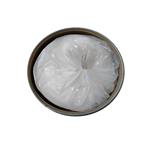
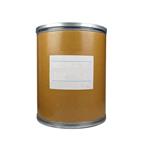

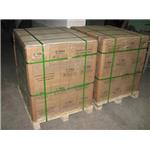
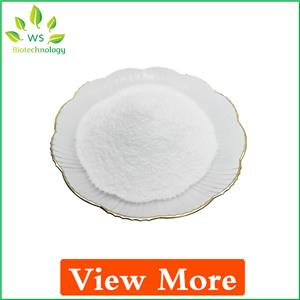
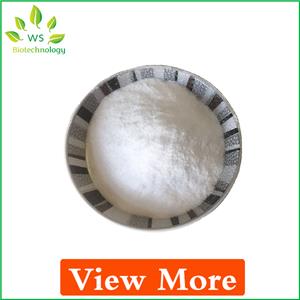
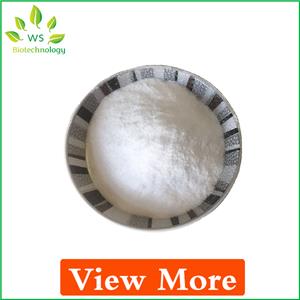

 China
China